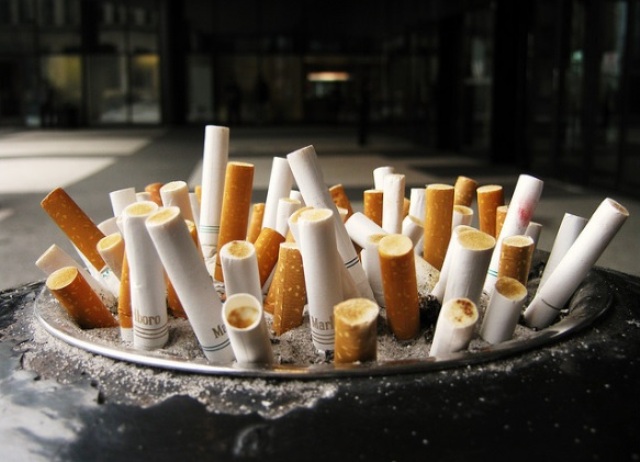Emanuel Agrees To Cut Cigarette Tax Hike To 50 Cents
By Chuck Sudo in News on Nov 25, 2013 11:00PM
Mayor Rahm Emanuel agreed to shave 25 cents off his proposed cigarette tax hike in an attempt to appease black aldermen while not alienating public health officials. While Emanuel can’t please everyone he did manage to satisfy the concerns of the aldermen with hours to spare before the full City Council is set to vote on his proposed 2014 budget.
The cut in the proposed cigarette tax hike to 50 cents would still make the cost of a pack of smokes in Chicago the highest in the nation at $7.17. (That’s combined with Cook County’s cigarette, which increased by $1 per pack last year.) It was only last week when public health officials held a news conference asking Emanuel to hold firm on his full proposed hike of 75 cents per pack. Mark Peysakhovich, senior director of government relations for the American Heart Association, said at that press conference “Cigarettes kill a lot more people in this city than guns do. Each aldermen seems to be freaking out about guns… The real crime is cheap, deadly product available in minority communities and killing lots more people than guns and bullets do.”
Behind the scenes, however, African American aldermen, convenience store owners and even members of Emanuel’s staff lobbied for scaling back on the cigarette tax hike as proof that he’s willing to be a consensus builder. Many black aldermen are in wards where the sale of single cigarettes on the street—known as “loosies”—are worse than sales of illicit drugs.
Shaving a quarter off the cigarette tax hike also eases concerns from retailers about losing money from ancillary sales connected to cigarette purchases. Public health officials argued the full 75 cent per pack cigarette tax hike would result in nearly 5,500 adults quitting smoking and 6,400 children would never take up a smoking habit.
Emanuel’s announcement comes as City Council is set to vote Tuesday on his $7 billion 2014 budget which is littered with small increases in minor taxes, fees and fines to fund after-school and summer jobs programs, anti-violence initiatives, early childhood education initiatives and other programs. Much of the revenue expected to be generated will go into a general fund to be spent at the discretion of the mayor and City Council.
